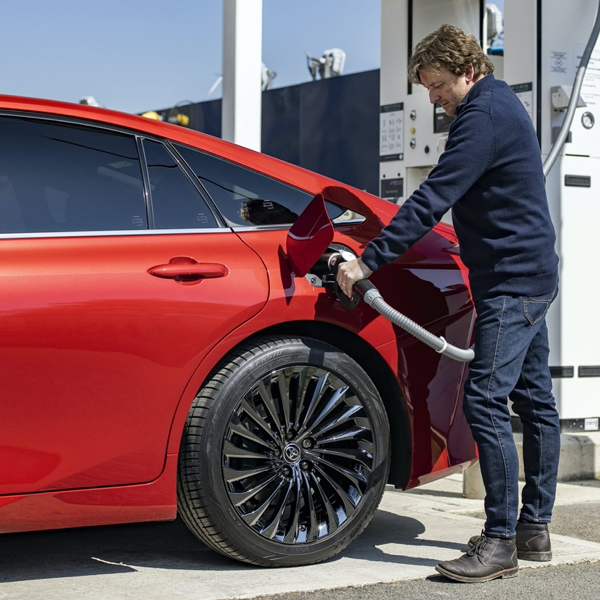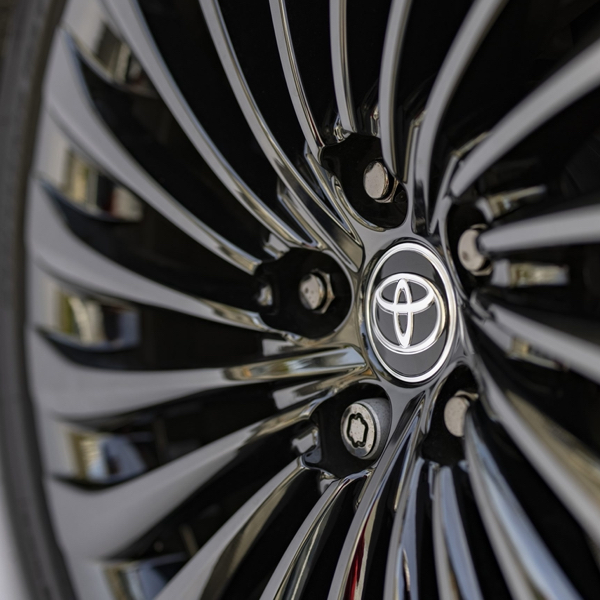Toyota, a global leader in automotive innovation, has consistently demonstrated its ability to evolve and adapt to the ever-changing demands of the industry.
From its origins in textile manufacturing to its dominance in vehicle production, Toyota has maintained a strong commitment to technological advancement. As the world transitions towards sustainable energy solutions, Toyota has positioned itself as a key player in the push for green mobility through its multi-faceted approach, including hybrid technology, electric vehicles (EVs), and hydrogen-powered internal combustion engines (ICEs).
A Legacy of Innovation

Toyota’s journey toward sustainability is deeply rooted in its history of groundbreaking innovations. The company revolutionised the automotive industry with the introduction of the Toyota Production System (TPS), which prioritised efficiency and waste reduction, principles that now align closely with sustainability goals. The launch of the Prius in 1997, the world’s first mass-produced hybrid vehicle, further established Toyota as a pioneer in green mobility. By integrating internal combustion and electric power, the Prius set the stage for the company’s broader commitment to carbon neutrality.
Multi-Pathway Approach to Sustainability
Toyota recognises that the path to net-zero emissions requires a diversified approach, catering to different markets, infrastructures, and consumer needs. Instead of relying solely on battery electric vehicles (BEVs), Toyota is investing in multiple green technologies to ensure a seamless transition to sustainable transportation.
-
1. Hybrid and Plug-in Hybrid Vehicles (HEVs & PHEVs):
Toyota continues to expand its hybrid lineup, offering fuel-efficient vehicles that serve as a bridge between traditional ICEs and full electrification.
-
2. Battery Electric Vehicles (BEVs):
With the introduction of models like the Toyota bZ4X, the company is entering the EV space while ensuring performance, safety, and efficiency remain paramount.
-
3. Hydrogen Fuel Cell Vehicles (FCEVs):
Toyota has been a leader in hydrogen fuel technology with the Mirai, which offers zero-emission driving by converting hydrogen into electricity.
-
4. Hydrogen-Powered Internal Combustion Engines (H-ICEs):
In a bold move, Toyota has unveiled its hydrogen-powered internal combustion engine, which allows conventional engine platforms to operate using hydrogen instead of gasoline, significantly reducing carbon emissions while maintaining the driving experience ICE enthusiasts enjoy.
The Hydrogen-Powered ICE: A Game Changer
The hydrogen-powered internal combustion engine represents a significant milestone in Toyota’s strategy. Unlike traditional hydrogen fuel cell vehicles, which use fuel cells to generate electricity, hydrogen-powered ICEs burn hydrogen in a manner similar to gasoline, producing minimal emissions, mostly water vapour. This innovative technology extends the life of existing engine platforms, reduces dependence on rare minerals required for battery production, and provides an alternative to fully electric solutions.

Challenges and Toyota’s Strategy to Overcome Them
While Toyota’s diversified approach presents promising solutions, challenges remain in the mass adoption of sustainable mobility. Key obstacles include:
-
Infrastructure Development:
Hydrogen refuelling stations and EV charging networks need significant expansion. Toyota is actively collaborating with governments and private sectors to support infrastructure growth.
-
Cost Efficiency:
New technologies often come with higher costs. However, Toyota’s production efficiency and scalability will help drive costs down as adoption increases.
-
Consumer Awareness and Acceptance:
Shifting consumer preferences requires education and incentives. Toyota’s strong global presence allows it to influence and shape public perception through marketing and government partnerships.
Toyota’s Commitment to a Greener Future
Toyota’s commitment to sustainability extends beyond its vehicle lineup. The company has pledged to achieve carbon neutrality in its manufacturing processes by 2050, reducing emissions across its supply chain and production facilities. Through initiatives such as energy-efficient factories, renewable energy adoption, and circular economy principles, Toyota is ensuring a holistic approach to sustainability.
Toyota: A Future Built on Choice and Innovation
Toyota’s ability to innovate and provide diverse solutions positions it as a leader in the global transition to green energy. By offering a range of hybrid, electric, and hydrogen-powered vehicles, Toyota ensures that consumers have multiple options tailored to their needs while supporting a scalable and pragmatic shift toward carbon neutrality.
As the automotive industry accelerates towards sustainability, Toyota’s pioneering work in hydrogen-powered ICEs, alongside its multi-pathway approach, solidifies its role in shaping the future of mobility. With a strong legacy of technological advancements and a forward-thinking strategy, Toyota is well-equipped to deliver on the promise of a net-zero, sustainable energy future.
The post Toyota’s Vision for a Net-Zero Future: Pioneering Sustainable Mobility first appeared on Haush.
